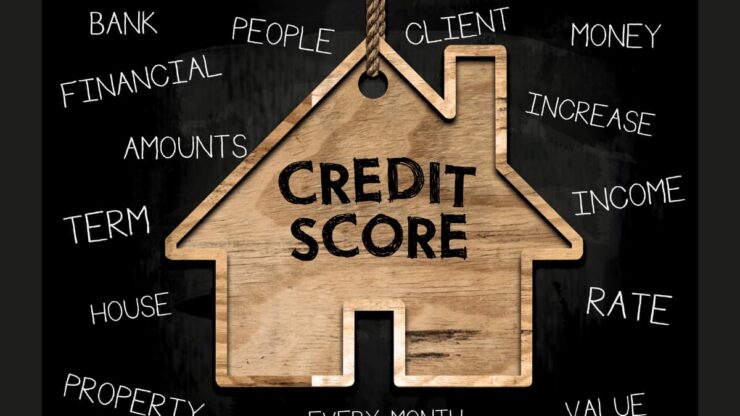When it comes to credit scores, we often hear stories of individuals who have had to wrestle with the complexities of this all-important number. The questions that usually arise are: How quickly can you improve your score? Are there any shortcuts? This article delves deep into the timeline of credit repair and offers insights on the speed with which one can expect results.
The Basics

Credit Score: At its core, a credit score is a numerical representation of your creditworthiness. Ranging typically from 300 to 850, this score is calculated based on your credit history, which includes payment history, amounts owed, length of credit history, types of credit used, and new credit.
Credit Reporting Agencies: The main credit bureaus – Equifax, Experian, and TransUnion – compile this data and use different algorithms to determine your score. If you’re struggling with a bad credit score make sure to find out more at credit repair Lindale.
Factors Affecting Repair Speed
The speed at which you can repair your credit score largely depends on the following elements:
- Nature of Derogatory Marks: The type of negative items present on your report can influence repair speed. A late payment may be easier to address than a bankruptcy filing.
- Age of Negative Information: Older negative marks carry less weight than recent ones. Over time, their impact lessens, and they drop off after 7 to 10 years.
- Overall Credit Profile: A person with a longer credit history might recover faster from a single negative mark than someone with a short or sparse credit history.
Immediate Steps for Improvement
For those in a hurry, certain steps can help in the short term:
- Check for Errors: Order a free copy of your credit report and comb through for inaccuracies. Correcting them can provide an immediate boost.
- Pay Balances: Reducing the amount you owe, especially on revolving credit like credit cards, can quickly improve your credit utilization rate – a key factor in your score.
- Negotiate with Creditors: Sometimes, if you’ve missed a payment, it’s possible to negotiate with the creditor. They might agree to remove the derogatory mark if you pay the balance.
Long-Term Strategies

While immediate steps can give a boost, true credit repair might need a more strategic approach.
- Consistent On-time Payments: Your payment history accounts for approximately 35% of your credit score. Making payments consistently on time will gradually improve your score.
- Diversify Your Credit Types: A mix of credit (credit cards, mortgage, auto loans) can show lenders you’re capable of handling various credit responsibilities.
- Limit Credit Inquiries: Each time a lender pulls your credit for approval, it can slightly reduce your score. While these dings are minor, they can add up.
Things to Avoid
In your journey to repair your credit, be wary of:
- Closing Old Accounts: This can decrease your available credit and increase your credit utilization ratio. Plus, it can shorten the length of your credit history.
- Opening Too Many New Accounts: Each new account can lower your average account age, thus reducing your score.
- Using Credit Repair Companies: Some might promise quick fixes, but remember, if it sounds too good to be true, it probably is. They can’t do anything you can’t do on your own for free.
Realistic Timelines
Now, to the crux of the matter: How fast can you see improvement?
- Removing Errors: After filing a dispute, credit bureaus usually have 30 days to investigate and make corrections. If validated, the change can be seen in the subsequent month.
- Payment History: If you’ve missed payments, it might take months of consistent on-time payments before lenders view you more favorably. However, the impact of a late payment diminishes over time.
- Large Debts/Bankruptcies: Major things like these can take years to recover from. A Chapter 7 bankruptcy, for instance, stays on your report for 10 years. However, its influence reduces over time, and taking positive steps can help rebuild your score even before it falls off.
The Importance of Patience

Remember that credit repair is often a marathon, not a sprint. While you might desire swift results, it’s essential to remain patient and consistent in your credit habits. The effort will pay off in the long run.
FAQs
How often is my credit score updated?
Credit scores can be updated as frequently as every 30 days, depending on when your creditors report your latest information to the credit bureaus. However, significant changes in your score might not be visible monthly unless you’ve taken considerable actions that would impact the score.
Are there specific credit cards or loan types that can accelerate my credit score improvement?
Yes, there are secured credit cards and credit-builder loans specifically designed for individuals looking to build or improve their credit. These options often require a deposit or collateral and report payment activities to the credit bureaus, thereby helping to enhance your credit score when used responsibly.
How much does a hard inquiry affect my credit score?
A single hard inquiry can lower your score by 5 to 10 points. However, its impact diminishes over time and typically falls off your report after two years. It’s also worth noting that some scoring models consider multiple inquiries within a short time frame (like rate shopping for a mortgage) as a single inquiry.
Do all lenders use the same credit score range?
While the common range is 300 to 850, not all lenders use this exact scale. Some industry-specific scores might have different ranges. For example, auto lenders might use a scale that ranges from 250 to 900.
Can joining a family member’s credit account as an authorized user help improve my score?
Yes, becoming an authorized user on a family member’s account can potentially boost your score. If the primary account holder maintains a good payment history and low credit utilization, it can positively reflect on your credit report. However, remember that any negative behavior, like missing payments, will also affect your score.
Will checking my own credit report hurt my score?
No, checking your own credit report is considered a soft inquiry and does not impact your credit score. It’s advisable to monitor your report regularly to ensure accuracy and be aware of your financial standing.
Final Words

In the world of credit, there’s no magic wand for instant repair. The speed of improvement varies based on the individual’s credit profile and the steps they’re taking. By understanding the influencing factors, taking immediate action, and playing the long game, you can set yourself on a path to a better credit score. The journey might be longer for some than others, but with diligence and patience, improvement is not just a possibility—it’s a guarantee.
